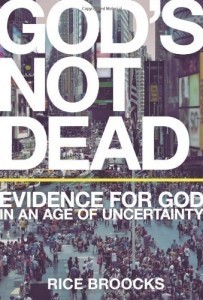Steve Murrell's Blog, page 66
March 15, 2013
Who Was the Real St Patrick?
 Green rivers, green beer, and goofy green hats, is that all there is to St Patrick’s Day, or is there more?
Green rivers, green beer, and goofy green hats, is that all there is to St Patrick’s Day, or is there more?
Fifteen hundred years ago Ireland was an idol-worshiping, slave-trading nation of savage pagans. In just one generation Ireland was transformed into a godly nation known for its scholars and missionaries. In his best-selling book, How the Irish Saved Civilization, Thomas Cahill writes that this national transformation was primarily the work of one man—Patrick.
When Patrick was a teenager in Britain, he was captured by pirates and forced into slavery in Ireland. During this time he had a life-changing encounter with the Lord.
After six years of cruel slavery, he escaped and returned home, but he soon received a divine call to return to minister to those who had enslaved him. In a vision, he heard one of his captors say, “We beg you, holy youth, that you shall come and walk again among us.” Can you imagine being called to minister the love of Jesus to the very people who had enslaved you for six years? Patrick responded to that vision and returned to Ireland to preach the gospel.
Shouldn’t disciples make a positive impact on their communities? Is it actually possible to disciple a nation?
During his 30 years of missionary work in Ireland, Patrick helped establish more than 700 churches and schools and trained more than 3000 ministers, many of whom went as missionaries to Scotland, England, France, Switzerland, Germany, and Italy. Patrick’s schools became some of the most important learning institutions in Europe during the Middle Ages, but his ministry went beyond just church work. He also helped transform government and reform laws that brought the end of slavery in Ireland.
The real St Patrick did more than wear green hats, drink green beer, and sponsor parades. So, instead of merely wearing green, why not celebrate St Patrick’s Day the way Patrick would, by MAKING DISCIPLES?
Happy St Patrick’s Day.
Exerted and edited from WikiChurch.
March 14, 2013
Help for the Evangelistically Challenged
 Last night I had the privilege of introducing my good friend, Rice Broocks at the official God’s Not Dead book launch.
Last night I had the privilege of introducing my good friend, Rice Broocks at the official God’s Not Dead book launch.
After reading 1 Peter3:15, I thanked Rice for living the 4 R’s and for writing a book that will help prepare the evangelistically challenged among us to live the 4 R’s.
What are these 4 R’s I speak of?
“But in your hearts REVERE Christ as Lord. Always be prepared (READY) to give an answer to everyone who asks you to give the REASON for the hope that you have. But do this with gentleness and RESPECT” (1 Peter 3:15)
1. REVERE. The starting point of evangelism is to have our own hearts right with God, in other words, to revere Christ as Lord.
2. READY. Once we get our hearts right, then we need to get our heads right. We need to be prepared. Trained. Equipped.
3. REASON. To get our heads right and ready, we need to understand the reasons for our hope. The God’s Not Dead subtitle explains the contents of the book: “Evidence for God in an Age of Uncertainty.” The 10 chapters explain 10 reasons a rational person should believe in God.
4. RESPECT. A right heart and a right head should result in treating people with respect as we engage them with the gospel.
Heartfelt thanks to Rice Broocks for providing such a great equipping tool.
To purchase your copy of God’s Not Dead, click HERE.
March 12, 2013
March 11, 2013
When Leaders Fail
 Along with millions of Americans, I watched the first two episodes of The Bible on History Channel. As much as I’m enjoying the TV series, the book is way better.
Along with millions of Americans, I watched the first two episodes of The Bible on History Channel. As much as I’m enjoying the TV series, the book is way better.
Highlights from Part 2 last night included: the crumbling walls of Jericho, Sampson doing major damage with a jawbone, Saul and David’s dysfunctional relationship, and Nathan calling out David.
I can’t stop thinking about the sad story of David, Bathsheba, Uriah and Nathan, especially that last scene when Nathan confronts David. Because of a faithful and fearless friend like Nathan, and a forgiving and gracious God, David repented and ended strong.
It is always tragic when leaders fail. Here are some of my thoughts as I ponder last night’s show about Samson, Saul, and David – three leaders who failed.
Irresponsible Delegation. It was the season when all good kings go off to war, but David got lazy, delegated his duty to General Joab and took the month off. (2 Samuel 11:1) While hanging out on his roof deck, David spotted Bathsheba taking a bath and acted on his lustful impulse. We all know the rest of the story. David got in trouble because he was not where a leader should have been during that season of life. When leaders stop doing what they are called to do, they invite trouble. There are certain things that can’t be delegated – certain battles that we must personally fight. If we refuse to lead and fight we will make a mess of our lives and the lives of those around us.
The Faithful and Fearless Friend. One of the most powerful scenes in The Bible series so far, was Nathan confronting King David. Every leader needs a friend like Nathan who will speak uncomfortable truth. The higher one climbs the leadership ladder, the less people are willing to speak truth. That’s why so many fall from great heights. God give us modern Nathans who will tell the truth!
Forgiveness and the Consequences of Sin. To his credit, David confessed and repented as soon as Nathan rebuked him. Nathan’s reply to David’s repentance is both comforting and terrifying: “The Lord has taken your sin away. You are not going to die.” (2 Samuel 12:13) I am sure David was comforted knowing that God was not going to kill him. However, while forgiven, David’s sin was not quite forgotten. Nathan spells out the consequences of David’s sin: that Bathsheba’s child will die and that innocent family members will suffer horribly (vs. 11,14). Sin is quickly forgiven, but the sowing and reaping process is rarely suspended. Lest we reason that because God is forgiving we can sin and repent at will, we better remember that sin hurts, and sometimes destroys, innocent bystanders.
I can’t wait to see Part 3 next Sunday night. In the mean time I will do my best to read, study, believe, preach, and obey the Bible. I hope you will too.
March 7, 2013
What’s Wrong with the Separation of Church & State?
NOTE: This article was originally written for the May 2004 edition of Evangelicals Today magazine. It has been edited and re-posted because this topic seems to never go away.
First of all I want to make it clear that I will not vote for any of the candidates running in the upcoming Philippine election. It is not because none of the candidates are qualified. It is because I am not qualified. Being a US citizen with a Philippine permanent resident visa, I am not allowed to vote in the Philippines.
Now to the point. Since my friend, Bro. Eddie announced his candidacy (remember, this was originally written in 2004) I have heard many opinions about whether or not he should run. The most passionate negative opinions have usually been built on the shifting sand of the “separation of church and state” doctrine. I do not presume to know God’s will for Bro. Eddie, but I do know something about the separation of church and state.
Here’s a sample conversation I have had too many times recently: “Pastor, what do you think about Bro. E ddie running for president?”
ddie running for president?”
My response is usually something like: “Since I can’t vote, why don’t you tell me what you think.”
“Well, I just don’t think it’s right.”
“Why?”
“Because preachers belong behind the pulpit, not in the palace.”
“And why is that?” I ask.
“You know, separation of church and state, and stuff.”
I have found that if the conversation goes on long enough “separation of church and state” always comes up. I have heard many church members, even pastors, quote the separation doctrine like it was a Bible verse. Separation of church and state sounds so spiritual it must be in the Bible. Right? Wrong.
If it is not in the Bible, then it must be in the US Constitution since American media mentions it so much. Right? Wrong again.
Separation of church and state was actually first mentioned by the author of the “Jefferson Bible,” an edition of the New Testament that removed all references to the supernatural including the virgin birth, the resurrection, and all miracles. Who was this blasphemer who created the separation of church and state doctrine that is so popular in Evangelical circles today?
The separation idea first appeared in 1802 in a letter US President Thomas Jefferson wrote to a group of concerned Baptist pastors in Danbury, Connecticut. In the letter Jefferson assured the pastors he would not allow his non-Christian beliefs to influence public policy because he held the opinion that there should be a “wall of separation between the church and the state.” Note that this was Jefferson’s personal opinion, not US Constitution and certainly not the Bible.
Jefferson’s separation idea actually did appear in a constitution 150 years after his letter. The Soviets believed separation of church and state to be essential in building a godless government, so they wrote Jefferson’s separation clause into their constitution. In other words, if we want to build an atheist society, then the separation of church and state makes sense.
However, if we want to build a godly society, then it may be a good idea for Christians to get involved in every level of society, including civil government.
As an American, I cannot vote in Philippine elections, but as a Filipino you must. As a foreigner I will not get involved in Philippine politics, but as a Christian citizen you must. It is time for Filipino Christians to come out from behind the non-Christian idea of the wall of separation between church and state and get involved in all levels of the political process.
——–
Here’s the 2013 edition of Victory’s policy on church and politics:
1. We encourage everyone in Victory, including pastors and staff, to get as involved in the political process as their schedule permits. We cannot be salt and light from the sidelines. We must get in the game and get involved.
2. We will not allow any Victory leader or member to use the pulpit, small group, prayer meeting or Victory name to promote or endorse a specific candidate or a political party. We will use the pulpit, small group and prayer meeting to give a biblical perspective to specific issues without reference to personalities and parties, including educating our members on how to choose their candidates wisely. We will also use the pulpit, small group and prayer meeting to inspire, train and disciple future leaders who will one day run for office.
3. We recognize that because of the advent of social media, pastors now have a platform to influence people beyond the pulpit . As such, pastors are expected to exercise discretion with regards to supporting specific candidates, qualifying that it is a personal support and not representing the church. Social media posts from the pastor should include a qualifying statement that the political opinions presented are in no way reflective of the view and position of Victory.
4. In our desire to see more Christians involved in nation-building, we will take the initiative to pray for and inform our people about and long-time, active members of our church who are running for political office, regardless of their political party, and whose platform generally promotes a biblical worldview. Just as we pray for the success of our members who are in different spheres of society, such as business, media, education, arts and entertainment, military, and sport, we believe that God has called certain people to serve in government, and we will pray for their success as well.
5. At a local church leadership’s discretion, we will provide a forum separate from our regular church activities for candidates running for local or national office to present their respective individual platforms to any of our members who are interested to listen. Ultimately, every citizen will vote for who they want to be in office, and we respect that right. At the same time, however, we believe that providing this forum is consistent with our vision of encouraging our members to be involved in the political process as well as helping promote the Commission on Elections’ drive for voters’ education.
We hope that one day there will be many Victory members serving God and country in all levels of civil government.
Righteousness exalts a nation, but sin is a disgrace to any people. -Proverbs 14:34
March 5, 2013
Helping Others Never Goes Out of Style
HELPING OTHERS NEVER GOES OUT OF STYLE. That’s the motto of the Real Life Foundation, and that’s the battle cry of the Real Life staff and volunteers.
Over a decade ago, Victory pastor Dr Joey Castro, quietly paid the tuition of numerous poor Filipinos students so they could stay in school and stay off the streets. Doc Joey had walked away from his medical career to plant a Victory congregation among disadvantaged Filipinos. The fact that he did not have deep pockets did not stop him from paying tuition out of his own pocket.
In time, Doc Joey’s lifestyle of generosity became the Real Life Foundation, a Christian non-profit NGO that is passionate about “transforming lives, families, and communities through hope and education.” The primary Real Life programs include Life Scholarships, Life Coaching, and Life Line. For info about helping a Real Life Scholar, click here.
Several years ago Doc Joey and his family moved to a restricted nation to serve as cross-cultural church-planters. Since then Real Life has expanded its programs under the leadership of executive director, Lynn Nawata, who has mobilized an amazing team of volunteers and staff. For me, serving on the Real Life board is a one of life’s great privileges.
One of the highlights of every year is the Race For Life that helps fund scholarships for disadvantaged but deserving Filipino students. Here’s a video summary of our recent Fun Run that included 6000 runners and walkers.
March 4, 2013
How to Make Jesus Really Mad
 ISLAND COVE, PHILIPPINES. Earlier today (written 3 weeks ago in Philippines, posted today from Nash) I had the privilege of speaking to over 400 Filipino Kids Ministry pastors, coordinators, and volunteers at our annual Victory National Kids Ministry Summit. The delegates came to Island Cove from fifty Philippine cities, plus Singapore, Cambodia, and Dubai.
ISLAND COVE, PHILIPPINES. Earlier today (written 3 weeks ago in Philippines, posted today from Nash) I had the privilege of speaking to over 400 Filipino Kids Ministry pastors, coordinators, and volunteers at our annual Victory National Kids Ministry Summit. The delegates came to Island Cove from fifty Philippine cities, plus Singapore, Cambodia, and Dubai.
My topic was the “why” of kids ministry. I told some stories, read some Bible verses, and asked four questions. Here are the Bible verses and questions.
Question 1: Are we bringing kids to church or to Jesus? Getting kids to church is a good start, but it is only a start. The goal is to get them to Jesus. Let’s not be like the disciples in Mark 10:13 who completely missed the point: “People were BRINGING LITTLE CHILDREN TO JESUS to have him touch them, but the disciples rebuked them.”
Question 2: Jesus valued kids ministry, do we? Jesus thought it was pretty important that the kids were getting close to him. The disciples saw no value in ministering to kids, so they tried to stop it with a rebuke. “When Jesus saw this, he was indignant…” (Mark 10:14) “Indignant” is a Bible word for “really ticked off.”
Question 3: What are we doing that hinders children from coming to Jesus? After rebuking the disciples, Jesus said, “Let the little children come to me, and DO NOT HINDER THEM, for the kingdom of God belongs to such as these.” (Mark 10:14) I’m afraid we inadvertently do much that hinders children from coming to Christ.
Question 4: What can we learn from children? Jesus not only allowed children to come to him, he honored them by making them the example for all to follow. “I tell you the truth, anyone who will not receive the kingdom of God like a little child will never enter it.” (Mark 10:15)
If we seriously ask and answer these four questions, the result will be verse 16. “And he took the children in his arms, put his hands on them and blessed them.”
Jesus desires to take our children in his arms and bless them. Often the only thing preventing this is our sorry attitude towards kids ministry.
March 1, 2013
Harlem Shake: Every Nation World Conference Edition
BRENTWOOD, TENNESSEE, USA. Several people have attempted to explain the Harlem Shake to me, but I still don’t get it. Probably never will. But from now on, I will pretend like I get it.
Any way, three days ago, I left the Every Nation North America office for a quick lunch. I returned to a strange video production site.
Here’s the proof that Every Nation people work hard while the boss is out, the official Every Nation World Conference Harlem Shake video.
February 26, 2013
Don’t Let Your Past Stop You
 NASHVILLE, TENNESSEE, USA. Too often we get so focused on what we are NOT, that we forget what God says we are.
NASHVILLE, TENNESSEE, USA. Too often we get so focused on what we are NOT, that we forget what God says we are.
Consider Old Testament writer, Amos who wrote: “I was neither a prophet nor the son of a prophet, but I was a shepherd, and I also took care of sycamore-fig trees. But the Lord took me from tending the flock and said to me, ‘Go, prophesy to my people Israel.’” (Amos 7:14,15)
We know him as the Prophet Amos, but he says he was not a prophet, nor the son of a prophet. Here’s the lesson: Amos did not let what he was NOT stop him from becoming what God called him to be.
He was a shepherd and a fruit-picker. But God wanted him to be a prophet. So he became a prophet. Case closed.
What has God called you to be? Are you letting your past, your parents, or your problems stop you from becoming what God has called you to be? Don’t! Be all you can be.
February 22, 2013
3 Essential Skills for Leaders
 MANILA, PHILIPPINES. We are glad to be back in our Manila apartment after a week in Taipei for our annual Every Nation Asia Leadership Team (ALT) meeting. This blog was inspired by something Bishop Manny Carlos said about leadership development during the ALT meeting.
MANILA, PHILIPPINES. We are glad to be back in our Manila apartment after a week in Taipei for our annual Every Nation Asia Leadership Team (ALT) meeting. This blog was inspired by something Bishop Manny Carlos said about leadership development during the ALT meeting.
Pastors and missionaries are leaders, or at least they are supposed to be. Some are good leaders. Others are not. Some have intentionally upgraded their leadership skills. Others have not.
It is one thing to be an effective minister; it is another thing entirely to be an effective leader.
A person who is an effective pastor or missionary will eventually attract a crowd that will become an organization that will require leadership skills. If we grow in ministry skills, but fail to develop leadership skills, we will create chaos and unwittingly destroy what we build.
Here are three leadership skills that pastors and ministers must develop and constantly upgrade:
1. Organizational leadership. If we are effective ministers, what we lead will grow. And, growing churches and ministries will require organizational leadership skills including management, strategic planning, budgeting, communications, and others. The larger the ministry grows, the more important it is to develop organizational leadership structures and skills.
2. Spiritual leadership. Organization charts, strategic plans, and management principles are important, but inadequate. We must also be spiritual leaders. Prayer, preaching, Bible study, discernment, and deliverance are just a few of the skills necessary to lead healthy growing churches and ministries.
3. Relational leadership. My good friend Joey Bonifacio always says, “discipleship is relationship.” So is leadership. Our influence in the lives of those we hope to lead will be directionally proportional to the depth of our relationship with them.
Are you intentionally and strategically developing leadership skills in all three areas to complement your ministry skills?
(Wrote this in Manila, posting from Tokyo airport on the way to Nashville.)
Steve Murrell's Blog
- Steve Murrell's profile
- 53 followers



